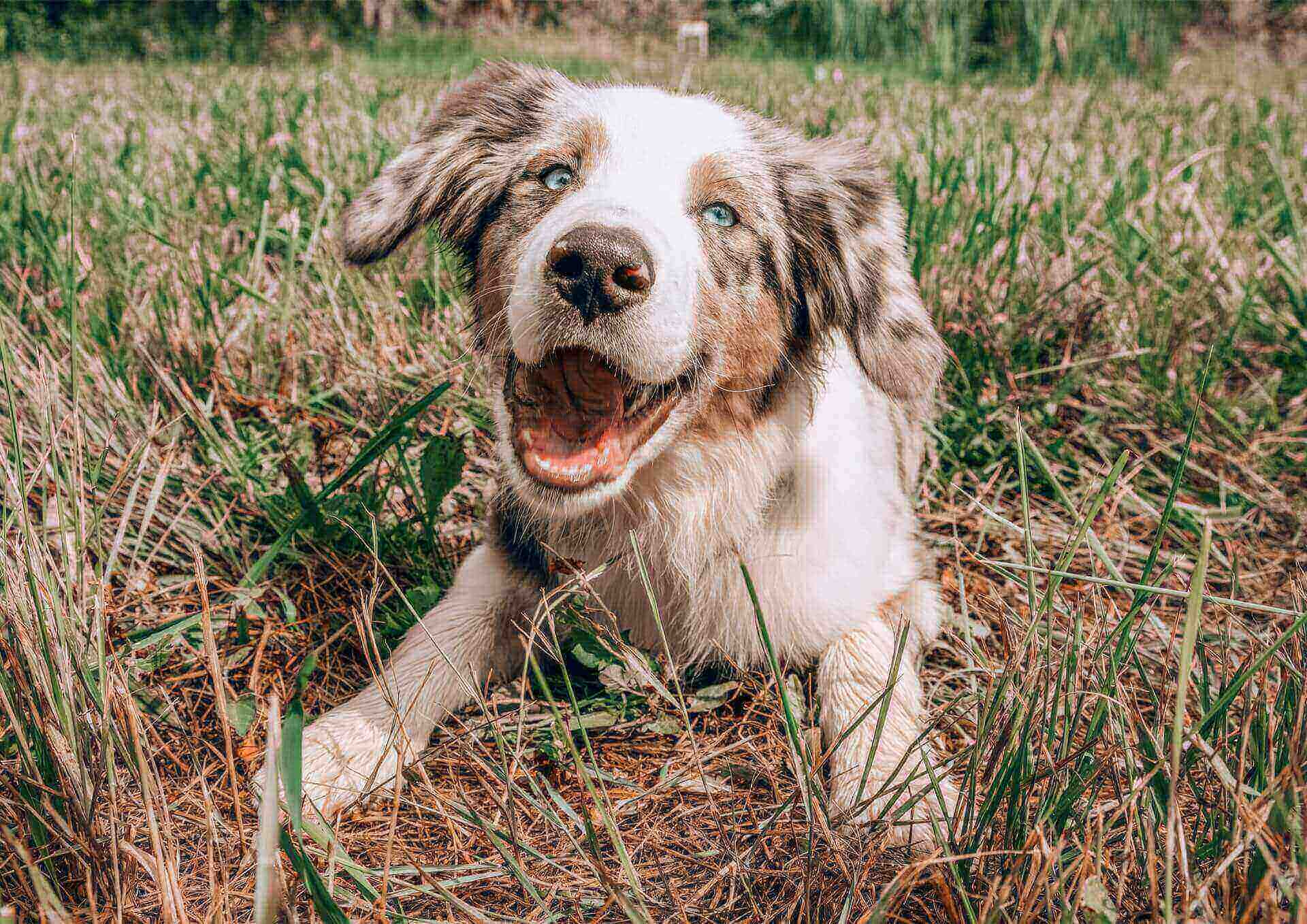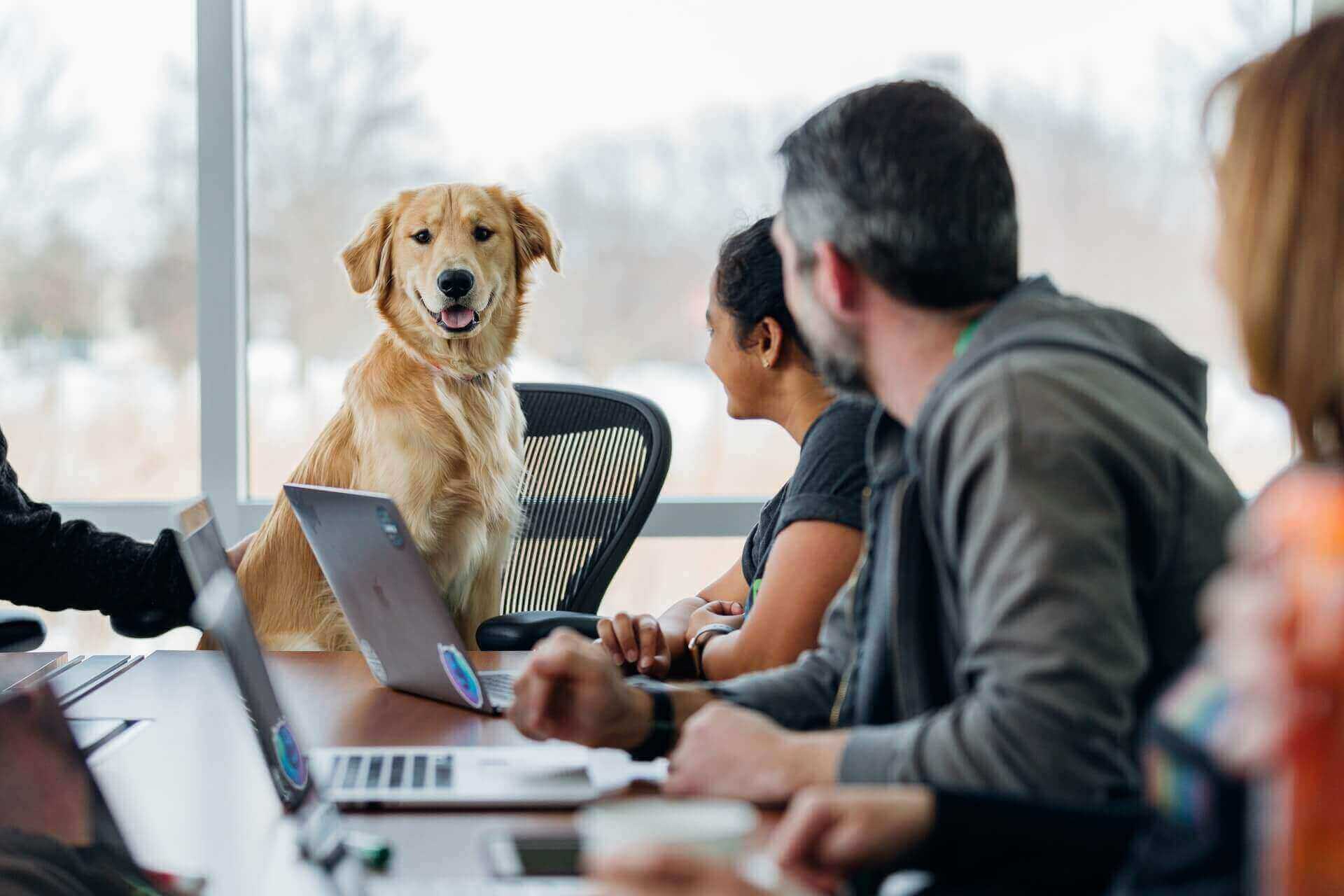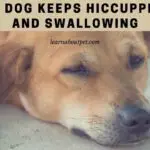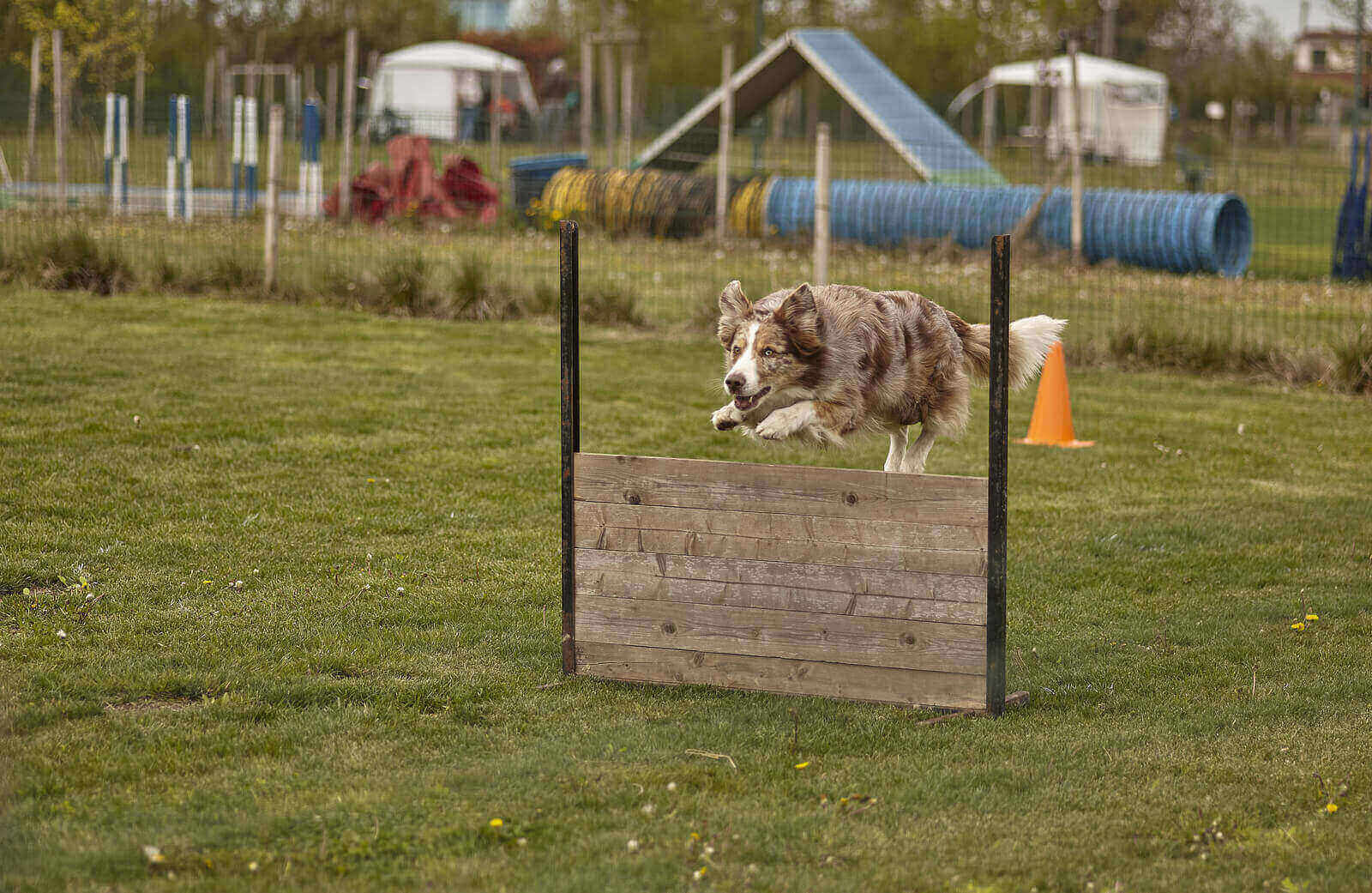Dog flinching is mostly an instinctive response. You try to pet your dog and he flinches. What’s wrong? Let’s discuss this common occurrence in some detail.
What Is Dog Flinching?
Dog flinching usually happens when your pet is apprehensive about anyone coming near. Dog flinching in sleep is a relatively common behavior. Dogs dream when they sleep. Twitching while sleeping is a response to something in their dream state.

There’s nothing to worry about this kind of dog flinching. However, when the same movement happens as the dog is awake, it indicates a problem. What is it?
Dog flinching when touched shows that your dog has a trust issue. Some dogs are born confident, while others may find it difficult to adjust. Reassure your pet gently that you touching him does not mean any harm.
Why Dog Flinching Occurs?
“Why is my dog flinching all of a sudden?
Dog flinching when outside may happen due to a lack of adequate socialization. Here are a few other reasons why it occurs.
Injuries
If a dog flinching suddenly starts out of the blue, it can be due to an injury. Dogs are good at hiding pain. But, at times, it may get unbearable even for the most resilient pets. Whenever the pain hits a spike, the dog flinches.
Injuries can be both internal and external. Is your dog flinching her paw and limping? The paws are particularly sensitive areas of a dog’s body. It is common for a thorn or pebble to get lodged in the paws.
In the winter, painful ice balls can form in the paws. Every time she presses her bruised feet on the ground, the pain hits her. This can cause dog flinching.
Neurological Disorder
Also, dog flinching may be the symptom of a neurological disorder. Is your dog flinching after seizure? It can be a warning sign that another seizure is about to happen. The vet would be able to tell you more about this.
What causes dog flinching on the left side? This behavior may indicate a localized seizure.
Seizures are of two main types, generalized and localized. The former affects the entire body. The latter affects a portion of the body.
Keep an open eye on the behavior of your dog. Look for other associated symptoms such as trembling and disorientation. Do you know that even chronic tail chasing can signify a neurological problem?
Traumatic Experience
Dog flinching for no reason means the reason is deep inside your pet’s psyche. It can occur because your pet has had a traumatic experience. This is particularly the case for many dogs adopted from shelters.
It is a typical profile for a dog flinching after moving to her new home. The previous interactions with humans had not been pleasant.
Such a buildup of psychological trauma installs deep apprehension in her innocent mind. A part of her wants to trust you for being gentle. Another part is afraid of punishment. As a result, the dog flinches.
“Why is dog flinching after boarding?”
If there is flinching, it may mean that the boarding experience has not been a happy one.
What To Do If Your Dog Is Flinching?
You will have to identify the reason behind this behavior. Dog flinching for no reason is actually a myth. There must be some underlying context to such behavior. Take your cue from the facts mentioned here. They should help you to deal with dog flinching.
If you own a pup, make sure to socialize him well. The period of eight to sixteen weeks after birth comprises the socialization window. Sometimes, flinching occurs because your dog is afraid of new experiences.
Desensitizing them about the different kinds of experiences is important. While this is more complex for adult dogs than for pups, yet it is not impossible.
You should reassure your dog that nothing bad is going to happen to him. Slowly, the dog flinching problem subsides.
Petting goes a long way in calming your pet. However, you should pet the dog the right way. Faulty petting can instill behavioral problems in the pet.

Here’s a brief table to help you. It should help you deal with dog flinching when touched on back.
| Petting | What does it mean |
| Suddenly petting where the dog cannot see | Dog flinching while laying down may occur. |
| Tapping the head from above | The dog may find it difficult to adjust to anything coming from above his head. |
| Trying to pet when the dog is showing signs of aggression | The dog can take it as an assault and attack you. The dog may flinch when you try to touch him. |
| Petting when the dog is afraid | Your pet interprets that fear is acceptable behavior. Inability to overcome fears may lead to dog flinching. |
How To Prevent Flinching In Dogs?
Does your dog flinch when you try to approach him? Observe his body language closely. When does he flinch? What is the exact dog flinching move?
Does he do that when you raise your hand? Is it when you come near him from the side? Make yourself properly presentable to your pet.
Don’t make sudden movements as it alarms them. Slowly make yourself familiar. Allow him to sniff you, then maybe give him a chin rub.
Avoid reaching out to him from the above. Better still, kneel by the side of your dog to pet him. If your dog is aggressive, don’t bring your face near his.
As he gains confidence in your presence, dog flinching will slowly go away. Also, you should always give him treats when he does not flinch at your presence.
Apart from behavioral problems, you should see if there is an underlying pain. A dog flinching at frisbee vector may have got arthritic pain. Check with the vet to rule out medical problems in flinching.
What Is The Cost Of Dog Flinching Treatment?
Dog flinching is not a disease. But, it can indicate an injury or a neurological condition. Depending on the severity, the vet may charge you a bill of $ 1500 to $ 2000.
It can indicate a behavioral problem. You may have to enroll your pet in a dog training class. That should cost you anywhere between $500 to $800.
Why Is My Dog Flinching For No Reason?
You need to investigate the dog flinching for no reason. Does your pet have any history of being abused? Traumatic past experiences instill deep apprehension in them. It can show up as occasional flinching.
If there had been no abuse, it might be because of an injury. Besides that, some pets are naturally prone to flinching. It’s in their nature, and there is no reason to worry.
Is Old Dog Flinching Normal?
It is fairly normal but you should pay extra attention to the well-being of your senior dog. Old dogs tend to have weak eyesight. The vet would tell you if there is a dog flinching vision problem.
Arthritis and joint pain can cause old dog flinching. Give your pet enough rest. However, do not neglect the daily walks. It’s needed for the complete well-being of your pet. Just take shorter walks, as far as your dog can without distress.
The anxiety level in old dogs is more. They may respond by flinching at strangers trying to pet them.
You should always be a pillar of support for your senior dog. If you are anxious too, it transmits to your pet.
Old dogs may become slightly disoriented. This can result in dog flinching as well.

Final Verdict – Dog Flinching
Dog flinching typically represents a wide array of issues. You should be able to identify the reasons behind it. If your dog is twitching in sleep as well, do read our other guide.
With proper care and patience, you can reinforce a calm behavior in your pet.

Welcome to Learn About Pet. My name is Rajkumar Ravichandran and I love all pets, travel, and amazing food. I write about my passion and personal experience caring for multiple pets in this blog! ❤️
Post Disclaimer
DISCLAIMER: THIS BLOG OR WEBSITE, "Learn About Pet", DOES NOT PROVIDE YOU WITH MEDICAL ADVICE AND IS NOT A SUBSTITUTE FOR MEDICAL ADVICE. ALWAYS GET IN TOUCH WITH YOUR PERSONAL VETERINARIAN AND USE INFORMATION HERE AS GENERAL ADVICE.
The information, including but not limited to, text, graphics, images and other material contained on this website are for informational purposes only. No material on this site is intended to be a substitute for professional veterinary advice, food recommendation, diagnosis, or treatment. Always seek the advice of your veterinarian or other qualified health care provider with any questions you may have regarding a medical condition or for pet food related questions.







